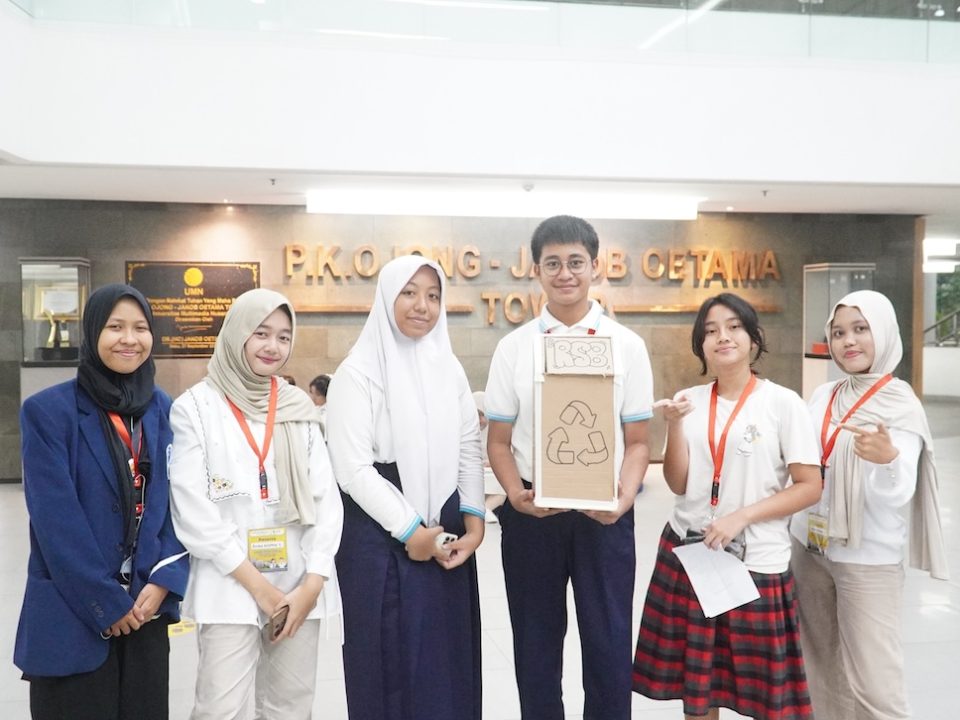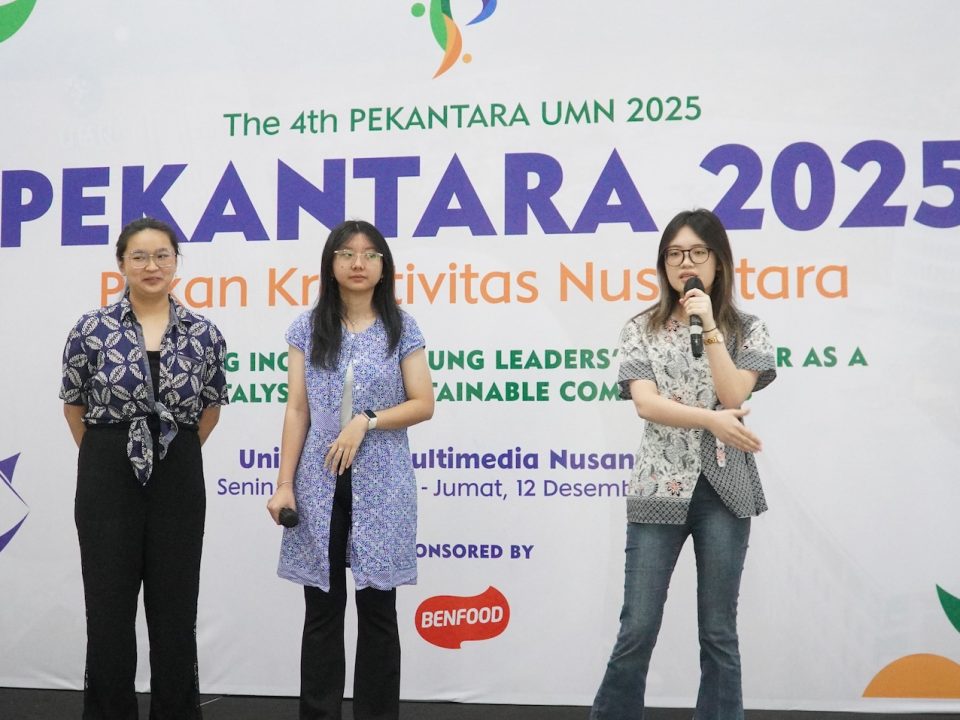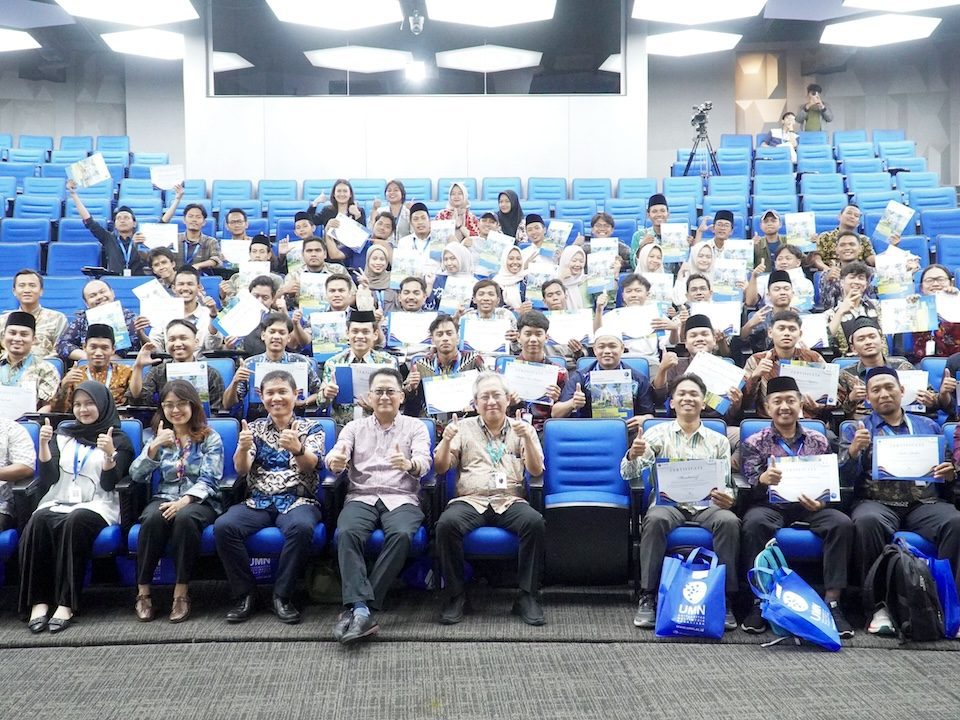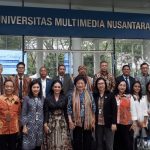
Cooperation between UMN and Universidade Oriental Timor-Lorosa’e Timor Leste
July 19, 2024
UMN Student is the Only Indonesian Representative to Bring Home The Gold Prize at WorldSkills China 2024
July 29, 2024
Emission reduction initiatives such as promoting cycling, walking, and car-sharing (Doc. UMN)
Universitas Multimedia Nusantara (UMN) continues to show strong commitment to carbon management and reducing carbon dioxide emissions through measurable strategies and visible campus initiatives. One of the foundational steps that is taken every year, including 2024, was the calculation of the university’s total electricity usage and overall carbon footprint. This measurement process is not just about reporting data, it serves as a key reference point for planning long-term emission reduction strategies, allowing UMN to take data-driven actions toward a more sustainable future.
Beyond energy generation, in an effort to foster a more sustainable and health-conscious campus environment, the Student Affairs Office at Universitas Multimedia Nusantara (UMN) is promoting a culture of cycling, walking, and car sharing among students, faculty, and staff. By encouraging active transportation and shared mobility, the university aims to reduce reliance on private vehicles and lower transportation-related emissions on campus. To further support this goal, UMN also provides a free shuttle bus service. These efforts reflect a broader cultural shift toward greener habits and everyday sustainability within the campus community.
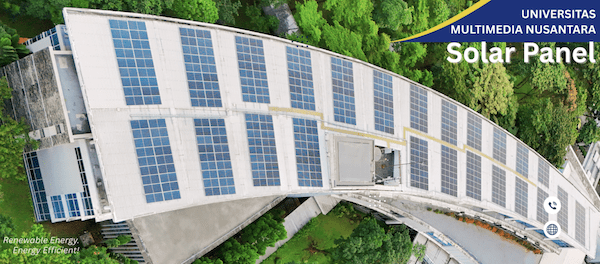
Installation of 376 solar panels at UMN campus to support renewable energy use. (Doc. UMN)
Solar panels have been installed on campus as a visible and operational commitment to clean energy. These installations were designed not only to generate power but also to align with the campus’s long-term landscape planning, ensuring that solar infrastructure is placed where it can deliver maximum efficiency. This demonstrates that UMN’s energy strategy is not just about short-term impact, but about thoughtful, integrated planning for lasting environmental benefits.
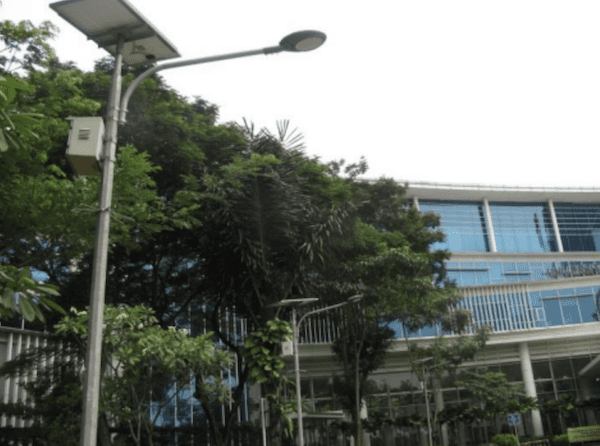
Solar-powered streetlights at UMN (Doc. UMN)
As part of its commitment to clean energy and sustainable infrastructure, Universitas Multimedia Nusantara (UMN) has installed six solar-powered streetlights along the main entrance for access to campus. Each unit features a 150 Wp solar panel paired with a 40 W LED lamp, providing efficient lighting while reducing dependence on grid electricity. This small but impactful initiative supports the transition toward renewable energy and contributes to the university’s efforts in addressing clean energy.
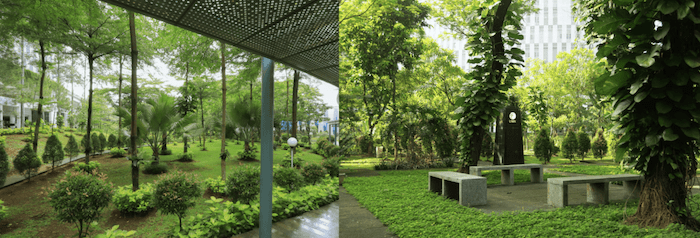
UMN Green Area (Doc. UMN)
UMN’s commitment to a healthier environment is also reflected in the campus’s green spaces. These areas not only provide shade and improve the quality of life for the university community but also act as natural carbon sinks. Trees and vegetation help absorb CO₂ from the atmosphere and play an important role in regulating microclimates across campus—further supporting UMN’s emissions goals in a natural and scalable way.
Water and waste management are also part of UMN’s carbon-conscious efforts. The university has implemented an advanced wastewater treatment system to recycle water efficiently across campus facilities. In addition, rainwater harvesting systems are used to collect and store rainwater, helping to recharge the local groundwater table. These systems reduce the demand for processed clean water and decrease the energy required for water supply and treatment. This contributes indirectly to lower emissions while supporting responsible resource management.
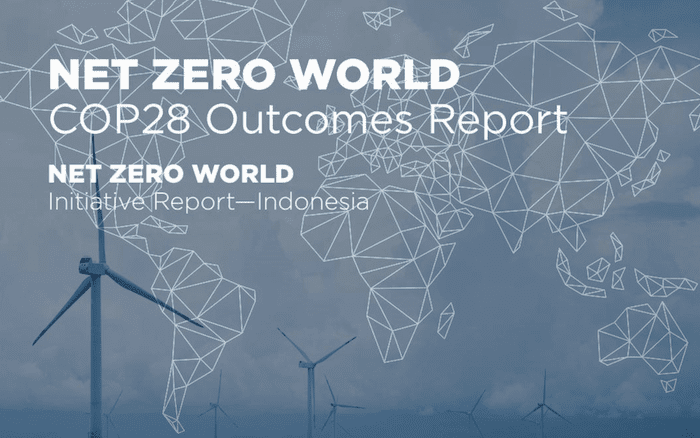
Lecturer from the Physics Engineering Department at Universitas Multimedia Nusantara (UMN) contributed to the Net Zero World Initiative – Indonesia’s Building Sector Decarbonization Project, in collaboration with MASKEEI and Lawrence Berkeley National Laboratory (LBNL), USA. This initiative focuses on reducing carbon dioxide emissions through strategies for low-carbon, energy-efficient buildings, and aligns with Indonesia’s national decarbonization goals. One of the key outputs of this international collaboration is the Net Zero World COP28 Outcomes Report – Initiative Report: Indonesia, where Dr. Rahmi Andarini, UMN lecturer, is acknowledged for its role. Through this, UMN actively supports carbon management processes and contributes to global efforts in climate action.
UMN Journey Toward a Green Campus
Beyond focusing on education, Universitas Multimedia Nusantara (UMN) is committed to environmental preservation through various green initiatives across campus. From tree planting and natural lighting in buildings to installing rooftop solar panels (PLTS Atap), UMN has earned prestigious international recognition. In partnership with SUN Energy, the solar panels help reduce carbon emissions by up to 184 tons annually — equivalent to planting 3,054 trees each year. Watch this video to learn more about UMN’s efforts and achievements in building a Green Campus in Indonesia!
UMN’s green campus initiatives include:
Naturally cool cafeterias without air conditioning, with ample ventilation
- Bright campus pathways illuminated by natural sunlight
- Extensive green areas for relaxation and refreshment
- Digital submissions for assignments to reduce paper use
- Energy-efficient campus recognized with the ASEAN Energy-Efficient Building Award
- Eco-friendly campus now featuring rooftop solar panels
Each of these initiatives reflects UMN’s holistic and proactive approach to sustainability. From energy and transportation to green spaces and water management, the university ensures that every operational aspect supports its commitment to reducing environmental impact. These ongoing efforts demonstrate that UMN is not only managing its carbon footprint but also building a culture of sustainability that is embedded into the heart of campus life.


